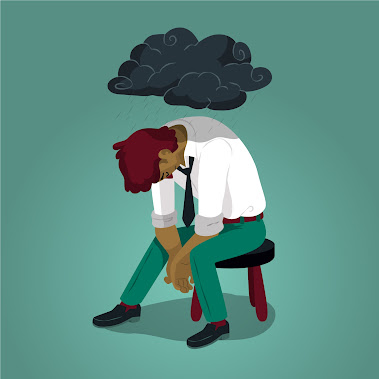DBT for Depression
By 2020, 21 million adults in the US, or 8.4% of the population, are expected to have had serious depression at least once. There are several procedures for treating depression, including different kinds of psychotherapy, antidepressant drugs, and a combination of the two. Dialectical behaviour therapy (DBT), a particular type of psychotherapy, may be a successful method for treating depression in certain patients.
To help with emotional dysregulation, which is frequent in depression, DBT treatment employs four approaches. Mindfulness, distress tolerance, emotional control, and interpersonal effectiveness are some of the DBT treatment strategies.
Continue reading to find out more about the science of DBT and depression as well as how this behavioural therapy method may be a useful component of your treatment strategy.
Can DBT be Used for Depression?
DBT has been successfully used to treat a number of different mental health issues, including depression and bipolar disorder, since it was first developed in 1970s to address symptoms of borderline personality disorder. Individual spravato treatment sessions, group therapy, coaching, and homework are all components of dialectical behavioural therapy, a thorough method for treating depression.
Participants in new research with emotional control and mindfulness training reported significantly fewer depression symptoms. The outcomes of a different study also supported the notion that taking part in DBT training can be a useful strategy for aiding people with severe depressive disorder (MDD). People with MDD benefit from DBT skills for depression by learning healthy emotional processing techniques. Finally, for some people, the acquired abilities help lessen depression symptoms.
Benefits of DBT for Depression
People who are depressed can learn more about what healthy feelings and reactions should look like thanks to the specialised strategies used in DBT treatment, which teaches emotional regulation skills.
DBT is a collaborative method that helps patients and therapists see both positive traits and dysfunctional attitudes and actions. The goal is to support someone in challenging harmful ideas while building on their already beneficial thinking patterns and habits.
This approach can help patients with depression:
Enhance their quality of life
Have better social skills
Improve their self-image
Take an interest in social activities again
Have the ability to concentrate or focus on things
Decrease in physical symptoms of depression such as body aches or headaches
How Quick Does DBT for Depression Work?
Even though DBT treatments can span anywhere from six months to a year, many patients discover that they experience slow but steady progress.
You can regulate upsetting emotions and learn useful coping mechanisms through DBT therapy. You will be assisted by your therapist in striking a balance between acceptance and change. Eventually, negative and unhealthy ideas will lessen, and you'll start to feel less depressed.
It's crucial to frequently attend and actively engage in DBT sessions. DBT is a commitment, but it may be highly beneficial. DBT therapy delivered online can increase access to this type of care.
DBT Techniques Essential for Depression
The four primary methods and strategies used by DBT are listed below. Each one has a particular area of concentration and a set of objectives for symptom relief and supporting your recovery from depression so that you may get your life back.
Mindfulness
One of the fundamental, essential, and crucial components of the DBT process is mindfulness. It helps someone with treatment resistant depression learn how to recognise their feelings. Beyond that, it enables individuals to give words to their emotions so they may deal with negative thinking patterns in a healthy way. Additionally, practicing mindfulness teaches individuals how to be present and how to fully inhabit the present.
The mindfulness component also includes behavioral activation skills, including:
Choose to do the opposite of what your emotions tell you when you know healthier reactions are possible
Accumulating positive emotions
Engaging in activities that foster a sense of competency
The DBT mindfulness module aids in the development of the abilities required to use mindfulness techniques in daily life in a rapid, simple, and almost natural way.
But before it can become a reflexive reaction, mindfulness has to be practised, much like other DBT skills for depression. But don't worry—if you stick with it long enough, mindfulness may significantly lower stress levels and depression symptoms, which will improve your capacity for enjoyment in daily life.
Distress Tolerance
The capacity to experience and endure challenging emotional situations is known as distress tolerance. Unfortunately, people with depression frequently have a low threshold for suffering, making this DBT module essential for managing depressive symptoms.
Utilizing distress tolerance abilities includes:
Distraction techniques
Radical acceptance
Being in the moment
Self-soothing
All of these mindfulness techniques can lessen the symptoms of depression. Identifying triggers for self-harm or suicide is another crucial component of this DBT component. They get better at using ways to alter their feelings and negative thought patterns as they become more adept at recognising these triggers.
Emotional Regulation
Depression's defining characteristic is impaired emotional control. Negative emotional reactions and overpowering sensations can be brought on by emotional dysregulation. People with depression can better cope with their intense emotions in more productive ways by developing emotional regulation abilities.
Emotional Regulatory Skills Include:
Identifying and naming emotions
Decreasing the frequency of unpleasant feelings
Reducing vulnerability to emotions
Managing and reducing emotional suffering
Interpersonal Effectiveness
Even though interpersonal effectiveness is the final DBT method, it is equally as important as the others. People can learn how to alter and enhance their relationships by developing their interpersonal abilities.
Most people who battle with depression on a daily basis find it difficult to maintain relationships. Deep connections and trust can both be problems due to a propensity to retreat socially and a general difficulty to ask for assistance, which can stymie meaningful relationships before they even have a chance to start.
Essentially, interpersonal effectiveness means that:
You’re able to ask for what you want or need
You can say no to requests when appropriate
People with depression need to identify their purpose for social connection and specify how they might accomplish the intended outcome in order to put interpersonal effectiveness abilities into practice. Both of these situations are appropriate for dialectical behaviour therapy.




Comments
Post a Comment